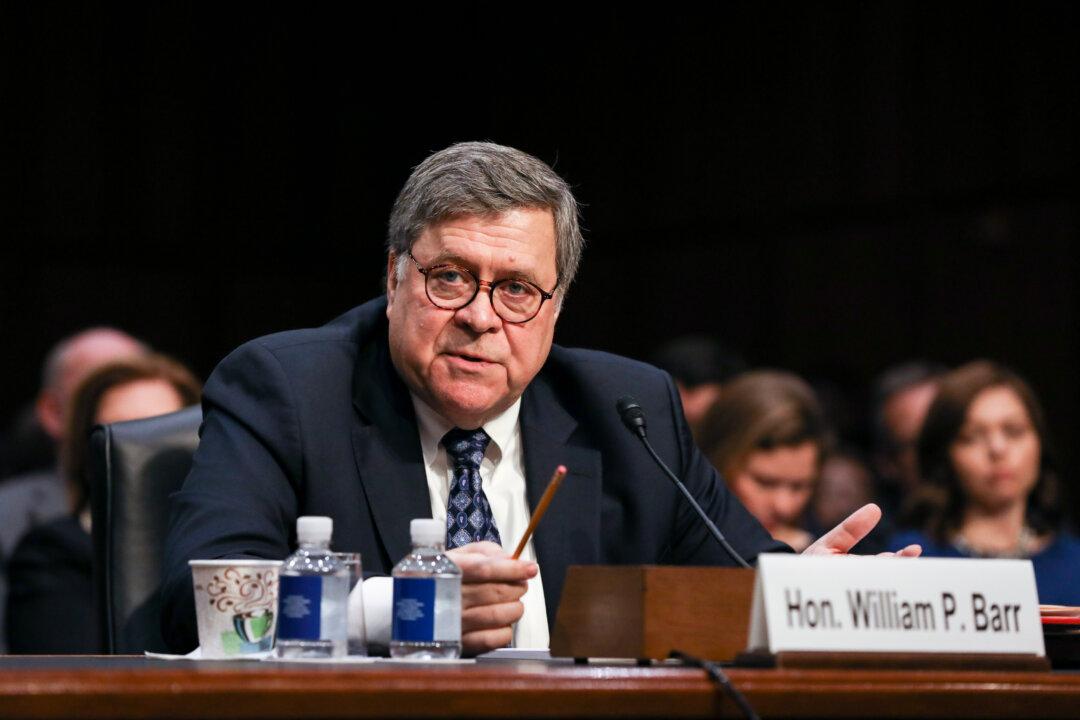Four Republican lawmakers sent a letter to Attorney General William Barr to urge him to take action against producers and distributors of obscene pornography.
The letter, obtained by the National Review, was signed by Reps. Jim Banks (R-Ind.), Mark Meadows (R-N.C.), Vicky Hartzler (R-Mo.), and Brian Babin (R-Texas) and asks the Justice Department to enforce U.S. obscenity laws against the porn industry.




